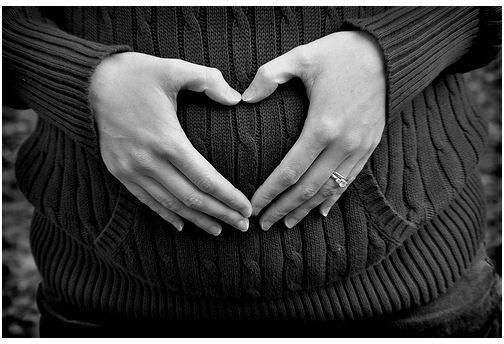Minimum Calories In Pregnancy
Taking care of one’s health during pregnancy should be at the top of any woman’s list. Providing the proper nutrition is perhaps one of the most important steps in creating a healthy pregnancy. You may have heard expectant mothers repeat the old saying “Eating for two”, but the fact is, the caloric needs of a pregnant woman are not that much different than those needs of a woman who is not expecting. This guide will take a look at the required minimum calories in pregnancy, and how these calories are utilized.
Minimum Calories In Pregnancy: What is Required for a Healthy Pregnancy?
Typically, the average adult woman requires approximately 2,200 calories per day to maintain a healthy weight. This number will increase or decrease depending on the woman’s metabolism, and will fluctuate with the amount of physical activity that is provided on a daily basis. The more active a person is, the more calories they are able to consume and utilize, with the adverse also being true.
During pregnancy, most women require only an additional 300 calories per day to nourish their growing baby, bringing their total daily calorie requirement to 2,500. For women who lead relatively sedentary lives and whose metabolism may be slower, this additional 300 calories per day may not even be required. A woman who regularly exercises and leads an active life may require additional calories above and beyond this 300 calorie recommendation. It is imperative to discuss your nutritional needs with your doctor during pregnancy.
How Much Weight Should Be Gained During Pregnancy?
Although each woman will experience pregnancy uniquely, the typical amount of weight gain during a healthy pregnancy is between 25 and 35 pounds. For women who are slightly over their ideal weight at the start of their pregnancy, a healthy weight gain will be approximately 25 pounds. For a woman who starts their pregnancy well over their ideal weight, a weight gain of just 20 pounds would be considered healthy. Women who are well below their ideal weight at the start of pregnancy may end up gaining up to 35 pounds or more.
The most important gauge of healthy weight gain during pregnancy will be overall health of both the woman and the baby. Frequent check-ups with a doctor can help to ensure that weight gain is on the right track and that the baby is getting enough nutrition to grow and develop properly. Just where do those additional pounds go during pregnancy? Below is the breakdown of where those extra pounds are typically distributed:
- Uterus - 2 pounds
- Placenta – 1.5 pounds
- Amniotic fluid – 2 pounds
- Breasts – 2 pounds
- Additional blood and other fluids – 8 pounds
- Additional fat storage – 7 pounds
- Baby – 7.5 pounds
Summary
Gone are the days when pregnancy was considered a free ticket to the buffet. These days we have the nutritional knowledge to know that a healthy pregnancy requires only a marginal amount of additional calories. Understanding the additional minimum calories in pregnancy is the first step to building a nutritious diet for mother and baby. A nutritious diet is the key to health during pregnancy. With the guidance of her physician and the help of a healthy eating plan, a woman can enjoy a healthy pregnancy without gaining additional unnecessary and unhealthy pounds.
Sources
https://www.askdrsears.com/html/1/T012100.asp
https://www.ucsfhealth.org/education/eating_right_before_and_during_pregnancy/
https://www.todaysdietitian.com/newarchives/td_0104p20.shtml
Photo Credit: “Motherhood” by Lucy James https://www.flickr.com/photos/lucy_james/4266049307/
